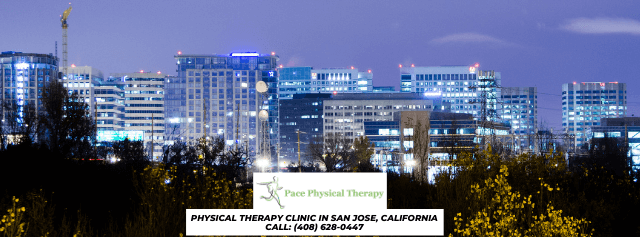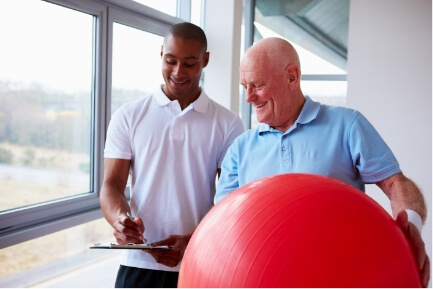What Causes Throbbing Pain In My Legs?

Venous hypertension / insufficiency
Tired, throbbing and painful legs can be due to issues with the veins in our lower legs. Blood is pumped into our arteries from our heart to the rest of our body. It’s going back to our heart through our veins. Our blood is propelled back to our lungs by the beating of our hearts and the muscles of our legs and feet as we walk and move our ankles.
Our veins have one-way valves to stop the blood from falling down to your toes. These valves can become weak or impaired. When this happens, our veins become so swollen (varicose veins) that blood is pushed into the tissue of our skin that it swells. This can make our legs feel tired, throbbing and sore. You can find that your ankles are swelling, particularly at night. This is because the blood is pushed into the tissue of your skin.
Being diagnosed with venous hypertension/insufficiencies
If your legs are tired, throbbing and painful, make a GP practice appointment. You may be given an appointment to see the nurse rather than the doctor as the nurses are also responsible for caring for patients with issues with their legs. Alternatively, there might be a Leg Club or a specialized leg clinic in your city. You don’t need to be referred to your GP to access these clinics.
If you see a nurse or a doctor, they should:
- Ask about your symptoms and how long you’ve had issues
- Take a look at your lower legs
- A basic test called a Doppler ultrasound may also be provided. This test tests the blood pressure in your ankle and compares it to the pressure in your arm to see if you have issues with the blood supply in your lower leg.
You may also be given several extra tests to check for other health conditions that may affect your legs, such as diabetes and anemia. If your GP practice believes that your discomfort is caused by problems with your veins or arteries, you could be referred for further testing at your local hospital or clinic.
What care will I be given for venous hypertension/insufficiency?
Compression Therapy
If your pain is caused by venous insufficiency and there are no problems with the blood supply to your leg/s, compression therapy should be offered.
Compression therapy increases blood flow by applying leg pressure. This can be achieved by bandaging the lower leg or wearing comfortable socks, stockings or tights. Compression therapy is very helpful in reducing swelling and curing or preventing sores or ulcers. There are a number of different forms of compression therapy, so ask your nurse to find one that’s right for you. Compression may be a little painful when you start therapy first, but any pain should be minimized when the swelling goes down. You can find it beneficial to take painkillers when you start compression therapy.
Venous Intervention
If your issues/symptoms are caused by venous hypertension, there are simple treatments available at the SNS to treat veins that are not functioning properly and thus offer a permanent solution to your problems. If complications are suspected to come from your veins, you can seek referral to your nearest vascular specialist team through your GP/health write an essay for me practitioner.
The most popular treatment options available include:
- Endothermal ablation – where heat is used to seal the damaged veins.
- Sclerotherapy – this uses special foam to close the veins
- Ligation and stripping-where the affected veins are surgically cut
Healthcare recommendations on venous hypertension/insufficiency
Making healthy lifestyle changes can help to reduce the symptoms of tired, throbbing, sore legs:
- Maintaining a healthy weight
- Taking light to moderate exercise, such as swimming or walking for approximately 30 minutes at least three days a week.
- Stop standing here for a long time
- Wear compression socks or tights instead of regular socks or tights.
Are You Looking for Relief From Neck Pain?
Pace Physical Therapy in San Jose, California specializes in non-surgical neck pain relief and recovery therapies. We pride ourselves on offering the best possible physical therapy available and going above and beyond for our patients. Our highly experienced physical therapist will work with you to improve your function and relieve your pain. We start by assessing the body as a whole. Oftentimes the cause of pain or an injury extends far beyond just the body part or muscle hurting. Without taking a comprehensive look at your entire self, we would be doing you a disservice in fully helping you heal and preventing future limitations. We then move on to fixing your areas of limitation. Not all diagnoses are created equal. One person with neck pain may have completely different limitations than the next person. Your recovery program needs to be specific to what YOUR body needs and not just the typical exercise program that you can find online. Just because your pain decreases or you can walk longer doesn’t mean that it is enough to get you functioning at the level you want to be. While this often signifies the end of care at your typical PT clinic we don’t stop providing guidance until we help you successfully meet every goal you set for yourself with us on day one. Contact us today to schedule your appointment!


